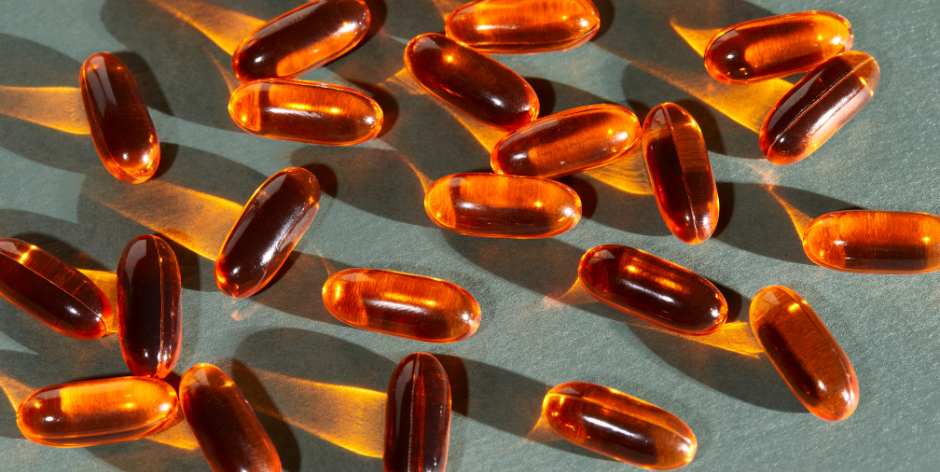Why are omega fatty acids so key to your health?

Polyunsaturated omega fatty acids (PUFA) are fatty acids that contain two or more double bonds in a chain. We can think of them as fats with a positive effect on human health. Based on their structure they are separated into clinically recognized groups; n-3, n-6, n-7 and n-9.
The first two groups are the most clinically important and are commonly referred to as omega-3 and omega-6. The human body is not capable of synthesizing them on its own. However, they are still called essential, and we must therefore ingest them from outside sources.
Among the representatives of omega-3 fatty acids we can place alfa linoleic acid (ALA), eicosapentaenoic acid (EPA) and docosahexaenoic acid (DHA); among omega-6 we can place arachidonic acid (AA) and linolic acid (LA). Their regular ingestion is highly important for the correct and healthy functioning of many organs and additionally they act as prevention and treatment with certain illnesses.
With daily intake there is no officially set dose that we should ingest. However, it is important for our health that we try to consume an increased amount of omega-3 fatty acids and ideally the ratio of ingested ‘PUFA’ should be 1:1 with omega-3 and omega-6. This is very difficult for us who live in central Europe because our food predominantly contains unhealthy animal fats and from the polyunsaturated fatty acids mostly just omega-6. Omega-3 is quite rare to find in our landlocked European diet.
‘PUFA’ deficiency is most often caused by a lack of ‘PUFA-containing’ ingredients in our diet; fatty sea fish (salmon, mackerel, sardines…), nuts, seeds, some plant oils, etc… With strict vegans we can also observe more severe deficiencies. A decreased amount of these substances can also appear in people that suffer from gastrointestinal disorders; patients with non-specific gastrointestinal infections, celiac disorder, pancreatic diseases and others… A rare cause of deficiency is sometimes caused by genetic abnormality where the enzymes that metabolise ‘PUFA’ are missing. Logically, pregnant and breastfeeding women and growing children have an abnormally high requirement for ‘PUFA’; the lack of which is most often the cause of dry skin, hair loss and overall un-wellness.
‘PUFA’ boast a range of positive effects on human health; especially omega-3, however omega-6 are also clinically important. Omega-3 are important for the correct functioning of the retina and therefore have a direct effect on eyesight. They also have anti-inflammatory effects and a leading role in certain immune system functions. Most importantly however is their cardiovascular benefits; supporting the healthy functioning of the heart, blood vessels and also are very effective in supporting the central nervous system.
Omega-3’s play a substantial role in the metabolism of lipids by synthesizing certain lipids by which they decrease the levels of those lipids that clog up our blood vessels while increasing the levels of those lipids that are beneficial to our health.
Already in the 70’s a Danish study confirmed that there is a drastically lower probability of stroke or myocardial infarction or thrombosis in Eskimos from Greenland, who live in the traditional way of consuming a large amount of fatty sea fish, as compared to Danish people living on the continent. These Eskimos had a very high concentration of omega-3 ‘PUFA’ from their high consumption of fish. Another example is the longevity and low rate of cardiovascular disease in Japanese people who are also well known for their fish-centric diet.
Omega-3 ‘PUFA’ positively affect the properties of blood by lowering its viscosity, preventing the clumping of blood cells and being inherently anti-inflammatory. These properties improve blood flow, positively affect heart cells, lower blood pressure and prevent cardiac arrythmia.
Regarding the nervous system, ‘PUFA’ support brain development; namely its cognitive functions. They play an important role in the production of substances that allow the communication between brain cells. These substances are necessary in the proper functioning of the nervous system, the lack thereof can manifest as neurological disease or even as anxiety, depression or other psychological ailments. In the USA, products containing ‘PUFA’ are commonly recommended by psychiatrists to aid in the treatment of people suffering from depression and anxiety. According to the latest research the presence of unsaturated fatty acids in the brain act neuroprotectively and a lack thereof presents itself in the blood of people suffering from neurodegenerative diseases such as Alzheimer’s. Some authors even speculate about how through such mechanisms ‘PUFA’ could act as antitumorous (inhibiting cancers).

Omega-9 fatty acids also carry significant health benefits. They represent one of the main monounsaturated fatty acids or ‘MUFA’. Clinically ‘MUFA’ have been shown to have cardioprotective and anti-inflammatory effects. They are also studied for their other, potential, therapeutic abilities. They are most commonly found in oleic acid which is contained in olive oil, avocado and some nuts.
In conclusion, we can state that polyunsaturated fatty acids form a very important part of our diet. We should consume enough omega-3 fatty acids, ideally at least as much as we ingest of omega-6 fatty acids. Their sufficient ingestion demonstrably positively affects multiple organ systems in the human body. I highly recommend their supplementation in people with dyslipidaemia, cardiovascular, neurological and psychiatric conditions.
MUDr. Jiri Hlusicka, Ph.D.
-doctor of internal medicine
